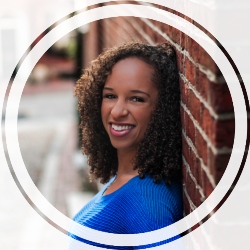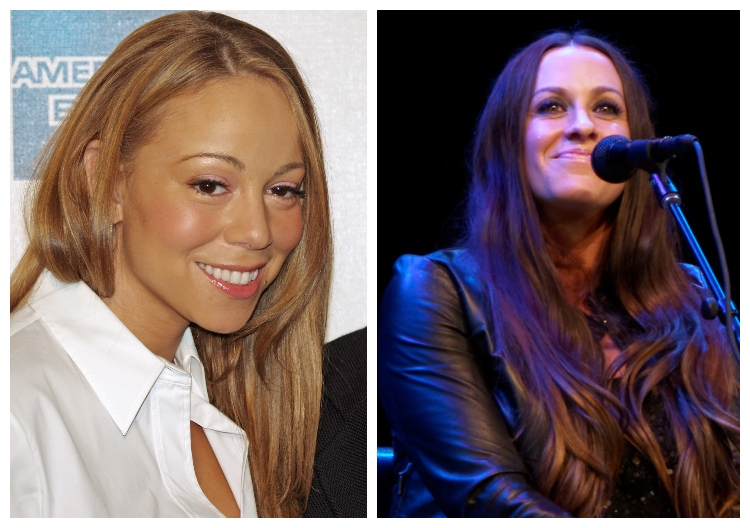How Alanis Morissette Made Music Complicated for My Identity
My dad caught me listening to Jagged Little Pill when I was twelve. The resulting conversation made me question everything about my music preferences, and what they said about who I was.
I’m about twelve and I’m just the angstiest. Dark feelings about being left out, misunderstood, and unloved spill out from my diary pages. I write angsty poetry nearly every day. If only my mother were alive. If only my crush would notice me. Maybe I should just fly away from here. But no one sees any of this. The (mostly white) kids at school see a wide, nervous smile adorned with braces (complete with bright blue elastic bands). They see frizzy, unruly hair pulled back into a “poof” that bounces jauntily as I walk. They see a girl who’s not ‘fully Black’, but certainly not white either.
My dad doesn’t see any of what’s in my journal, unless he’s peeking. I’m not at all sure what he sees when he looks at me. I myself don’t spend much time lingering in front of mirrors. I won’t really begin to contemplate who I am until much later in life.
It’s Saturday afternoon and I’m working my way through Alanis Morissette’s masterpiece album, Jagged Little Pill. I recently visited my sister for the weekend, and she had somehow ended up with two copies. There’s explicit language on a couple of the tracks, so she had given me a copy with the don’t tell your dad caveat. She’s my half sister on my mother’s side, so she’s not worried about getting into any trouble with him.
Alanis Morissette’s music is really speaking to that dark place inside of me, even though I know the subjects are far beyond my comprehension. My emotions are rising up out of my chest, and it feels good to fall into the place her songs are taking me. I can’t help but turn the volume up.
It was a slap in the face, how quickly I was replaced. And are you thinking of me when you f*** her?
My bedroom door swings open.
“Give me that CD,” my dad says.
I know I’m in trouble now, but I’m feeling particularly rebellious.
“I’m old enough to listen to this,” I plead.
My dad’s not having it. He plans to have a conversation with my sister later about what I am and what I’m not allowed to listen to. But he’s got something else on his mind.
“Why are you listening to music like this?”
“Like what?” I ask blankly, irritated.
He hesitates, seeming to rethink his angle.
“Why don’t you listen to Aretha Franklin? Janet Jackson?”
“I do. On the radio.”
“But you don’t have their CDs,” he points out.
I’m doing some serious thinking at this point. Where is he going with this?
Dad realizes he can’t dance around the topic. It’s clear he’s been looking for a way into this conversation for a while, and here’s his open door. He takes a deep breath.
“Why don’t you listen to more Black music?”
I’m surprised by the question. I’ve never really thought about the race of the people whose songs I like to listen to. I like what I like. I’m enjoying what I’m seeing on Total Request Live after school on MTV. I like what my friends share with me. Sure, my friends are all white. But I’ve never thought much about that. However, I do know that I’m hearing so much hip hop, R&B and rap on the radio in my parents’ cars, and it feels good to have music of my own in the confines of my room.
I try to tell my dad as much, but he stops me.
“It’s important that you listen to Black music,” he says.
“Why?”
“It’s part of who you are. It’s part of your culture. You can’t just listen to white music and get the full scope of the industry. You’re Black. You should be listening to a wider variety.”
He goes on for a while about the importance of listening to Black music, but I don’t want to hear it. I’m not taking in any of what he’s saying in. All I know is that I want my Alanis Morissette CD back and I want to blast it so loud that I won’t have to think about who’s Black, who’s white, and whether or not that matters while I’m just trying to feel my feelings.
After the lecture, he leaves, taking the CD with him. I’m left contemplating the rest of my CD collection.
Am I allowed to keep listening to N’Sync? The Backstreet Boys? Britney Spears?
Does the Spice Girls count as Black music since there’s one Black member? I, of course, always have to play Scary Spice when my friends and I pretend to be the girls and create fake music videos. You can’t be Baby Spice, Kira. That wouldn’t make sense.
I realize that the only “Black” music I’ve got is The Bodyguard soundtrack that features mostly Whitney Houston songs. (That woman was a national treasure.) I’ve also got Mariah Carey’s Butterfly. I’ve heard she’s biracial just like me. Does she count?
My mind is swirling with questions. Should I be listening to more Black artists even if I don’t like their music? Should I be learning to like their music? Does listening to more Black music mean I also have to give up some white music? Do I have to give up Alanis Morissette?
I’m not sure what I’m supposed to do with the disparate thoughts. So I put the conversation with my dad in the back of my mind. I pull it out when I want to make friends laugh. My dad took my Alanis Morissette CD away because he thinks I don’t listen to enough Black music. They laugh. They think my dad was being unreasonable.
Years later, I’ll understand the dilemma, and why he felt he needed to intercede. I’ll understand his fear that I was getting swept up in the white world around me, and that I wasn’t connecting enough with my roots. With his roots. I’ll find myself trying to diversify my son’s entertainment right from the very beginning of his life. But at the age of twelve, my dad’s words nag me. Are my music choices proof that I’m being untrue to who I am as a person? Am I a traitor to Black people if I consume mostly white entertainment? Am I even Black enough to claim Black music for myself? What about my white side?
There’s, of course, so much incredible music by Black artists that I’ll discover and connect with down the road. I’ll learn that my music tastes can vary by genre, not by race. And that there are Black musicians who fall into all of those genres. But at this point in my youth, without any biracial guidance, it all just seems so black and white with no wiggle room in the middle.
The responsibility I have as a Black person living in a mostly white small town, and the struggle of trying to figure out who and what I am, seem too big to analyze at the age of twelve. I just want to feel, period. (I’m about to discover musical theater, so an outlet for my big feelings is coming.) But I won’t ever again be able to listen to Alanis Morissette without contemplating the intricacies of my identity. I won’t be able to just listen to music with abandon, without intrusive, overly-analytical thoughts, for quite a long time.

